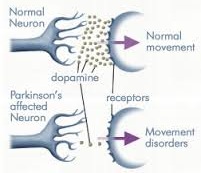Parkinson’s Disease

One of my friends recently lost his father. On being asked, his almost repeated reply was that his father got Parkinson’s disease. I had no clue and could not ask him the meaning of same in his moments of grief. I am sure many others too didn’t know what it was. This prompted me to do a bit of research and I feel it would be good if I share this with everybody for their understanding.
What Is Parkinson’s disease?
Parkinson’s disease mostly affects older people and is a result of the gradual degeneration of nerve cells in the portion of the mid-brain that controls body movements.
The first signs are likely to be barely noticeable like a feeling of weakness/ stiffness in one limb, or a fine trembling of one hand when it is at rest. Eventually, the shaking (tremor) worsens and spreads, muscles become stiffer and balance and coordination deteriorate. As the disease continues, depression, and other mental/ emotional problems become common. Parkinson’s disease generally begins between the ages of 50 – 65 with about 1% of people in that age-group being affected. Rarely, but it can also occur in younger adults.
What Causes Parkinson’s Disease?

Body movements are regulated by a part of the brain called the basal ganglia, whose cells require a proper balance of two substances called dopamine and acetylcholine, both involved in the transmission of nerve signals. In Parkinson’s, cells that produce dopamine begin to degenerate, throwing off the balance of these two substances. In majority of Parkinson’s cases, the cause is unknown. However, some common causes of Parkinson’s disease can be:
- A viral infection
- By exposure to environmental toxins such as pesticides, carbon monoxide, or the metal manganese
- An adverse reaction to prescription drugs
- Use of illegal drugs
- Exposure to environmental toxins
- Stroke
- Thyroid and parathyroid disorders
- Repeated head trauma (for example, the trauma associated with boxing)
- Brain tumor
- An excess of fluid around the brain (called hydrocephalus)
- Brain inflammation (encephalitis) resulting from infection
Parkinson’s disease may also be present in persons with other neurological conditions, including but not limited to Alzheimer’s .









